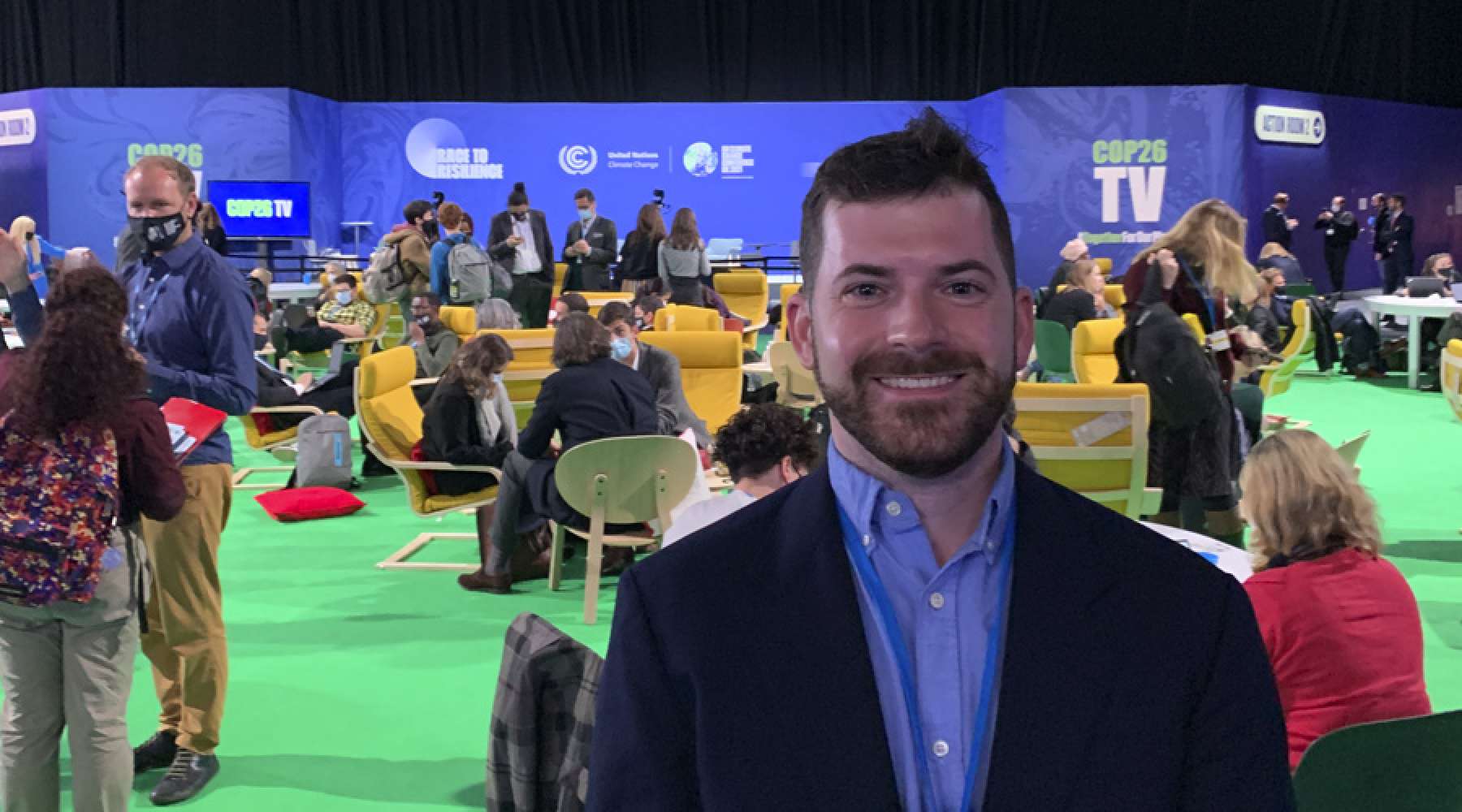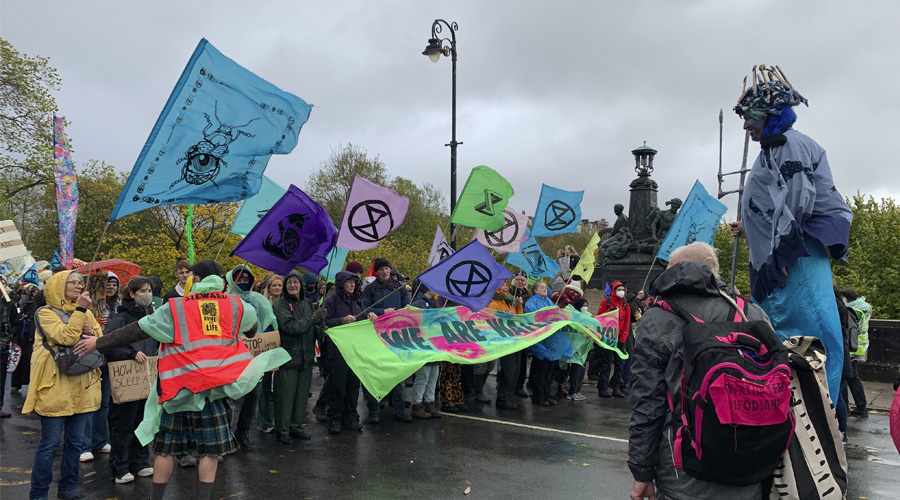
Sam Gant T’22 shares the takeaways from his recent trip to Glasgow and the COP26 climate summit.
“You are failing us. But the young people are starting to understand your betrayal. The eyes of all future generations are upon you. And if you choose to fail us, I say: We will never forgive you.”
Greta Thunberg
Address to the UN Climate Action Summit, September 2019
The UN Conference of Parties is vast and overwhelming. On any given day there are over 600 plenaries, negotiations, press conferences, and presentations. Through funding from Tuck, I had the opportunity to sit in on negotiations, meet private sector executives, and eat terrible sandwiches while hemmed in by large crowds.
I choose to leave COP feeling optimistic. This is a conscious decision on my part because there is objectively so much to feel pessimistic about. The fossil fuel industry sent a larger delegation to COP than any individual nation. If all the pledges made at COP are perfectly adhered to, the global average temperature will rise to 1.8°C over pre-industrial levels. This means that 99% of coral reefs will die, all the glaciers will melt, and residents of island nations had better sign up for swimming lessons. These changes will occur by the time the Tuck Class of 2022 is eligible to receive Social Security benefits.

Activists took to the streets of Glasgow to demand immediate action on climate change during the summit.
I am optimistic because it remains possible, technically, to keep global warming below the catastrophic 1.5° C threshold. I saw amazing technological advancements at the conference: JCB makes industrial front-end loaders with hydrogen-powered combustion engines that produce only steam, and an Australian company has developed technology to turn CO2 emissions from gas extraction into solid bricks for home construction. Let’s not be under the illusion, however, that some deus ex machina will resolve generations of destruction. I am encouraged by the interventions of the tens of thousands of activists who descended on COP demanding urgent and radical action. The walls of the conference center are thick, and the negotiators cannot hear the drums and cowbells. The demonstrators, however, are consumers, and voters, and employees, and are committed to driving change.
COP has spurred me to reflect deeply on the role that I have played in exacerbating climate change, and what I can do going forward. I am what Graham Zimmerman would call a highly “imperfect advocate.” I have taken hundreds of flights in my lifetime, I drive an internal combustion car, and I really like to eat steak burritos. I will find those things difficult to give up. Attending this conference has crystallized my thinking on a few things that I can do, and I think these are behaviors that other Tuck students can adopt as well.

Scenes from a hike around Loch Katrine in the Highlands.
Work where you can maximize the scale of your impact. Demand urgency and accountability on climate change. Tuck alumni will go on to advise multinational firms as consultants, structure transactions for financial behemoths, and rise to leadership roles in Fortune 500 companies. We are united in our goal to become wise leaders to better the world of business and can achieve more change at a global level by working for Exxon and Walmart than by joining advocacy groups and NGOs. Ask tough questions about how corporate decision-making is aligned with keeping global warming below 1.5° C.
Speak plainly and don’t get scared by jargon. I hesitated to get involved in sustainability because I felt unqualified. Climate change is discussed in unintuitive terms: parts per million of atmospheric aerosols, intermittent vs. dispatchable power, and thousands of confusing acronyms. Don’t feel like you need to be a chemist, geologist, or meteorologist to understand what is going on. If you can read The Lorax, you can understand climate change. Embrace human-centric communication, and consider how actions create impacts on water, soil, and people.
Go outdoors. On one of my most rewarding days at COP, I skipped the morning sessions of the conference and went hiking at Loch Katrine in the Highlands. Cold mist gave way to pale sunlight; I felt squishy humus underfoot and saw twinkling light reflecting from the minerals in the schist cliffs. The air smelled amazing. I worried that the negotiators drinking bad coffee in windowless chambers of the windowless conference center were missing out on this and would lose perspective on why their work is so important. Time spent in nature recharges me and strengthens my resolve to protect these spaces.
I am deeply grateful to the Tuck Center for Business, Government & Society and the Revers Center for Energy for funding my journey and providing this opportunity for personal growth. All views expressed above are entirely and authentically my own.
The Revers Center for Energy believes that regardless of industry, tomorrow's wise leaders will need to make informed energy, climate change, and sustainability decisions during their careers that drive innovation for a sustainable future.
The Center for Business, Government & Society (CBGS) creates and develops awareness, knowledge, skills, wisdom, and leadership on issues at the intersection of business, government, and society.